Aaron From DNA Genetics Talks Their First Strain, His Love For Tasty Weed, And More – Herbies Interviews
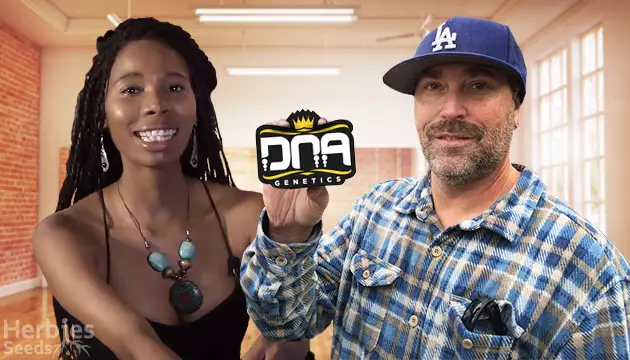
Not so long ago, our host Jasmine sat down to have a talk with none other than Aaron from DNA Genetics, one of the legendary creators of the brand, who brought it to cannabis stardom and earned innumerous awards for DNA Genetics strains. This is the edited version of the interview adapted for reading, but you can also watch it on our YouTube channel. Follow the link to watch not only the full version of the interview, but also get a chance to win a pack of cannabis seeds in our YouTube contest.
Jasmine: What are your plans to maintain DNA Genetics’ position in the market, seeing as your company is so successful?
Aaron: I think keeping our company successful is about keeping on top of our licensing model, where we’re doing licensing with other big companies in multiple areas of the world, and legal cannabis in California. Those are the main objectives of our company.
Jasmine: What about the Prop 64? Is that of any issue to your company? I know a lot is being done to change policies in regard to making it legal for some. So are you involved in those processes by any chance?
Aaron: Actually, we’ve been involved in logistics legislation, the Safe Banking Act in California, and different aspects of governmental issues and stuff like that. We've been lobbying in Washington. As far as Prop 64, it doesn't really affect us except that we get taxed heavily in this new legal market that we want to change. That being said, we want to play in this legal world. This is our life. This is what we do. So we're willing to play by the rules. It's a little harder for smaller companies. And to be honest, the black market is still thriving out here, the illicit market is still thriving in California, maybe all over! I mean, people are making lots of money right now because the price of weed has gone up.
Jasmine: So you decided to take the difficult route because you want to be in the market long-term?
Aaron: I think we took the difficult route when we moved to Amsterdam and decided to pay taxes, play by the rules, and go for it. You know, you only live once. You have to roll the dice. You have to take those risks. We were the ones who left California at the beginning of the legal medical market, when it was still kind of dangerous to own a dispensary. People are still getting raided and whatnot. We were the ones who took the route. We followed the dream and went for it – we did what we said we were going to do and we made it, I think.
Jasmine: Well, you’re one of the best on the market, so I think you did make it actually!
Aaron: You know, Don and I just love weed.
Jasmine: Is it that simple? I think there's more to it.
Aaron: You're right. But we don’t find ourselves any different from you, if you like weed. We row in the same boat. We wanted to follow our dreams and produce some of the finest cannabis the world has ever seen – that's what we set out to do and that's what we did. We don't put ourselves in a different boat or anything like that.
Cannabis has been used for centuries for everything, from fuel to textiles. So again, we love cannabis and were just at the right place at the right time in history to make a name for ourselves. A lot of other people who are the same way have come out of the woodworks – and you know, we're just like those people. We took a risk.
Jasmine: I'm interested, when all this started, what was the first strain to appear in your range of seeds and what was the production process?
Aaron: I guess to go back to the very beginning, we met a gentleman when we went on a trip to Amsterdam, Gypsy Nirvana. Gypsy Nirvana had a website called Seeds Direct. He was a big retailer of seeds from all over the world, and he asked us to produce a seed crop for him. We did a seed called Who's Your Daddy? It was 6 different powerplant clones that we acquired from a pollinator lady – the Hash Queen, I think they call her. And then we had some males of that weed, and we had found some seeds of our own. And we had acquired some males from other growers and other breeders in Holland. We took those males and crossed them into powerful females to produce Who’s Your Daddy? seeds. We didn't know who the father was, but we knew who the mother was. We produced about 60,000 seeds that were given away as freebies. As we produced those seeds, he said, hey, you guys, you’ve come up with a name for these seeds that you guys produce, but not a name for your company. And during that time, we were hanging out with some friends and one of them was like, “I got it, I got the name for you guys. It's called DNA Genetics, DNA, Don and Aaron.” That was in 2003, I believe, and that was the beginning of DNA.
Then in 2004, we entered our first Cannabis Cup with LA Confidential and Cannalope Haze. We came in third in Indica with LA Confidential, which was a huge success for us because it was our first time entering this huge thing and we grew up reading High Times magazine. We always heard about the Cannabis Cup. Amsterdam was the mecca of cannabis in a lot of people's eyes. Not so much Don and Aaron’s eyes though, because we felt California had better weed.
Jasmine: Yeah, I watched one of your interviews and you said there was sort of a gap in the market and you went there and filled that gap. You saw that something was lacking at the time. So are you saying that the industry right now is more developed?
Aaron: Oh, absolutely, with the laws changing in the United States and all over the world, there's a lot more access to cannabis, genetics, and freedom. In California, you can go buy some weed out of the dispensary legally. You can go to Colorado, do the same thing. There's more access. You don't have to fly all the way to Amsterdam, although Amsterdam is still a hub because the legal seed companies have been breeding seeds for many years. But I wouldn't call it a mecca any more. I wouldn't call it the center. It's the center of Europe for sure to go to and smoke some weed legally and in a coffee shop. For Americans and Canadians, they don't need to go there, because they can smoke weed in their own country. They can go into a shop and pick up weed legally. Obviously, you can't smoke it in a coffee shop setting, but you still have the freedom of buying weed.
Jasmine: So you're based in Amsterdam and you're based in the States. What qualities do you look for when collaborating with other seed banks?
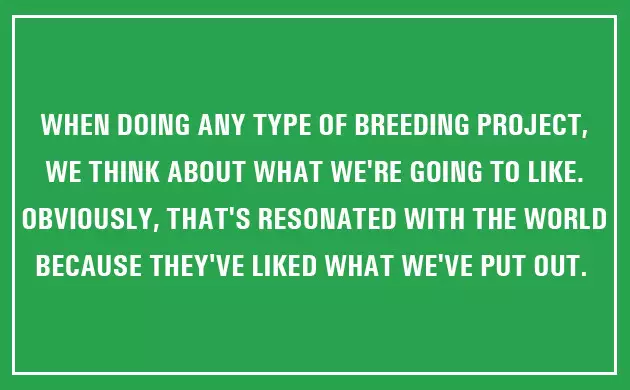
Aaron: There's been 3,000 new seed banks that have popped up in the past four years, I think. As I said, Don and I love cannabis, and I think first, we think about ourselves when we're doing any type of breeding project, what we're going to like. Obviously, that's resonated with the world because they've liked what we've put out so far over the past 17 years we've been in business. As of right now, I'd say I focus on terpene profiles, flavonoids. I think those play a major key in cannabis. It's the flavor. It's the smell.
Jasmine: What about the therapeutic properties as in THC or CBD?
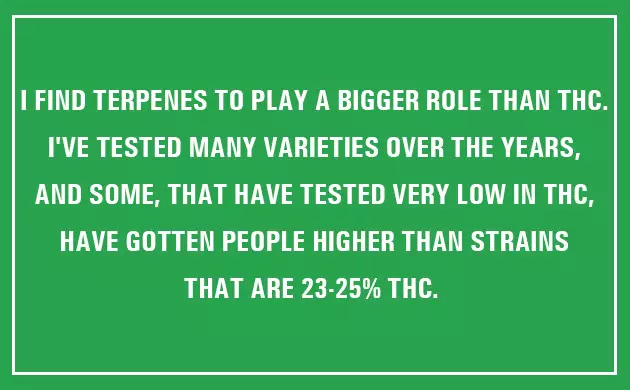
Aaron: For CBD varieties, I believe that’s very true. With THC varieties, I find it very different. I find terpenes to play a bigger role than THC. I've tested many varieties over the years, and some of the varieties that have tested very low in THC have gotten people more medicated or high than strains that are 23, 24, 25 percent THC. We believe that’s directly because of terpene profiles. I mean, do you go to the bar and buy the highest percentage alcohol that they sell, Everclear? That's one hundred and fifty percent. It'll burn your throat. You don't go out and say, I want a shot of Everclear, the strongest stuff. You want to enjoy your cannabis, terpene profiles, flavor. People drink wine and enjoy the taste. It's the same way I feel about cannabis. I want to enjoy the taste. As numbers go, CBD is good, THC is good. But I think a combination of the CBD, THC, the whole plant, is the most important thing.
Jasmine: What methods do you use? Do you use PCR is in order to back up this information, or is this just sort of testing and mapping?
Aaron: Well, over the years, we didn't do any of that. We didn't do any mapping. We didn’t do any PCR testing, because you could take two buds from the same plant and give it to two different testing labs and you end up with two different test results. There was no consistency in the tests. So we never came out and said our strains are 21 percent THC or 15 percent CBD.
Jasmine: Do you care about consistency? Let's say one of your specimens has therapeutic aspects to it. And when clients who try to buy that again and use it for their treatment, what if they don't get the same results? What is your due diligence in keeping consistency for your clients?
Aaron: Well, that just comes down to breeding the same stock and not changing up your parents. Once you change that, you change the chemistry at the other end. You know, cannabis will always vary in THC percentages and CBD percentages in the same variety depending on the grower, depending on the testing lab.
Jasmine: Is DNA genetics doing mass selection, or is that hybridization?
Aaron: Both, to be honest. We do hybridization and then we do selection out of that hybridization. Some things are F1 hybrids, where it's a mom and a dad that we continue to use. And those that come out of those are F1 hybrids. Some of them are actually stabilized a little bit more – F5, F6, F7 – depending on what we feel is the right end. We'll take it to the point where we're happy.
Jasmine: Would you ever smoke with Elon Musk?
Aaron: I mean, you know, I wouldn't say no. I've smoked with some very famous people over my time.
Jasmine: Do you have anyone in particular that you want to smoke with one day?
Aaron: Bob Marley, I guess, would be huge. Maybe when I pass away and make it up into the heavens or into that other realm, the dimension or whatever you want to call it, I can smoke with some of these people and with some of my friends. But Elon Musk would be cool. That would be interesting. I mean, I smoked with Oliver Stone, you know, and Cheech & Chong, Willie Nelson, B-Real.
Jasmine: What did you learn from them?
Aaron: I find myself always asking questions. Willie Nelson is an OG. He's older than me. You want to hear the stories this guy tells. It doesn't even need to be about weed. It could just be about anything. Anything about them going on a tour somewhere, getting in trouble or anything like that. Those are the type of things I like to ask some of these celebrities.
Jasmine: Do you plan on hosting any festivals or maybe some educational summits where people from different industry niches can come, exchange ideas, and make this market more mainstream?
Aaron: I don't know if we would put on any of those trade shows ourselves. First, now we're dealing with the COVID world, so not much is happening. And I think there's been plenty of Emerald Cups and Expos, MJ Business Cons, where there are plenty of speakers to talk about all the issues, all the legalities, techniques.
Jasmine: What about research?
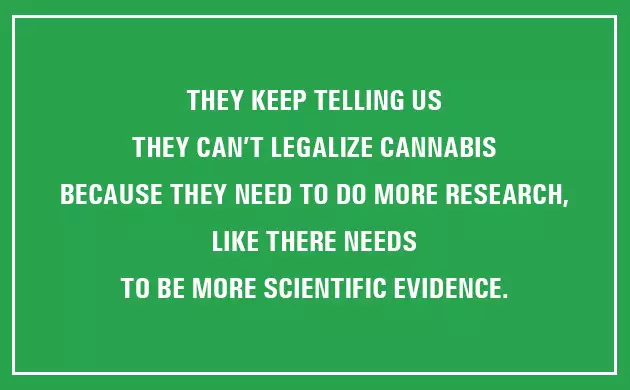
Aaron: Research is happening slowly, you know, way too slow. I mean, they keep telling us they can’t legalize cannabis because they need to do more research, like there needs to be more scientific evidence. Cannabis has been used for centuries and centuries throughout the world with positive results, not any negative results. The only negative results are from governments, pharmaceutical companies, the paper industry. Because hemp can be grown and used as paper and all sorts of textiles, there's some big money against cannabis. And once safe banking and legal banking comes into play, you'll probably see these companies that have been so against it get involved in it.
Jasmine: I did some of my research and I'm going to take a wild guess. Is LA Confidential your favorite strain?
Aaron: It's hard to say favorite when you have kids. I look at all these different varieties as my kids. Yes, I do like one a little bit differently than the other, but not more. You have to be politically correct here. LA Confidential is great. Not super high in THC, super medicinal. Some people would say it's like nighttime smoking, good for their PTSD, and it helps them sleep and relax. Some other people say it's good for autism. It's actually this variety that’s been used for autistic patients in California for quite a few years. Every variety affects people differently. I'm a connoisseur of cannabis, I would say I’m more connoisseur than a medical user of cannabis, and L.A. Confidential ticks the boxes for me. The smell, the taste, the aroma, the high. The box it doesn't tick for me is in cultivation. L.A. Confidential is not the fastest grower. It's not super vigorous.
I also love Chocolope, a great Sativa, something that I can smoke down to the filter, because I enjoy the taste. It's all about the taste for me. There's so many varieties that we put out there. They're all different. Tangie, for instance. The market changed in California, and everything was orange after we put that variety out. It was like aromatherapy for people. You open the bag and take a whiff of this variety, and it's like, wow. You get hit with this thing. It will either make you smile or turn away. There’s no in-between.
I love OGs. I'm Californian and I find myself smoking OGs more than anything. I like different weed. I enjoy other people’s weed, not just my own. I go visit my friends, and I'm like, hey, here's what I’ve got, but I want to smoke what you have. But then I find, seeing what's in dispensaries, a lot of it seems like there might be a gang of different names, but the varieties seem like they're all the same. You open a bag and it smells like the other variety in the next bag to it.
Jasmine: I'm African. We have our traditional medicines. We have our doctors that are not in the hospital, but they’re in the village. And they're giving us the proper plant medicine that we need in order to be healthy. We have what are the most diverse and best genetics in the world, so I think we're doing something right in the tribalism in the culture and just generally, our approach to medicine and using plants as treatment.
Aaron: I agree 100%. I just think Western medicine and Western laws play a huge role in not letting traditional medicines take the place. We know different cultures have been using plants, herbs, and spices in all sorts of stuff for thousands of years, and all of a sudden, we can't use these things. “Oh, there's no study on them!” Even though the doctors in those countries, those villages have been using those plants for as long as that culture has been alive. Western medicine doesn't acknowledge that. And when I say Western medicine, I mean most pharmaceuticals. My family, we use a natural path, we try to use those natural medicines, those plants and those herbs to treat whatever colds and coughs. It's crazy, I believe in traditional medicines, it's the world that’s been changed.
Jasmine: What Western medicine is doing, there's just no balance, it's either of two extremes. And it seems as though a lot of Western medicine can learn from these traditional methods. And what we can learn from traditional medicine is that if something is in natural form, it doesn't necessarily need to go under any sort of chemical composition, isolations, isomeric changing of any components in it. It’s just what it is, and it does the job it should do. So I think honestly, it's a huge conspiracy, what these pharmaceutical companies are.
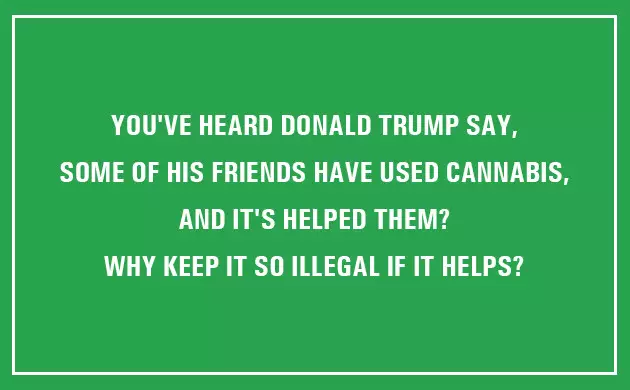
Aaron: I don't want to use the word conspiracy, because I think that’s a word that just goes against what the media tells you. I would say these are actual truths that go against the media. You know, when my mom was alive, she was taught that cannabis was this horrible drug, that it's not good for anything. People her age were brainwashed, like you said, brainwashed into believing cannabis was such a horrible thing. And then, as my mom was dying, and I was involved with our company, she started to realize that this could have actually helped her. But in her mind, she wouldn't do it because she's been brainwashed. And that goes with so many other people in the world, like people that are dealing with cancer. Cannabis can help them in a way.
You've heard Donald Trump say, some of his friends have used cannabis and it's helped them? Why keep it so illegal if it helps? Well, because bigger money's behind keeping it illegal. I believe we should have the field to play in the game and not get pushed out by these giant corporations that are coming along. These corporations don't have knowledge of the plant. They know about a book, but the book ain’t gonna get you anywhere. In this world of the plant, you need some experience.
I've seen multi-million dollar companies hire tomato farmers to grow cannabis. Well, a tomato farmer doesn’t know the phenotype. They don’t know how to flush it, because that’s not what you do in tomato farming. They don’t know how to dry it, because that’s not what you do in tomato farming. They don’t have different phenotypes where some flower in 7 weeks and some flower in 9 weeks, and they just say “Hey, we’re gonna wait for the 9-week one to finish before we cut down the whole crop.” I’ve seen it firsthand. We need people with cannabis experience growing cannabis. I can’t tell you how many times I’ve seen it all over the world.
Jasmine: What was your experience with us?
Aaron: You guys have always been great with us. I can’t say how long it’s been with Herbies, but it’s been over 8 years for sure. Can’t say anything bad, you guys do the job. If there’s an issue, you take care of the issue. For a company like us, that’s what we look for.
Herbies Head Shop expressly refuses to support the use, production, or supply of illegal substances. For more details read our Legal Disclaimer.



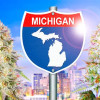
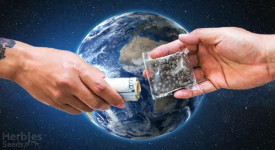
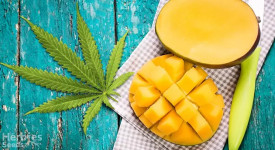

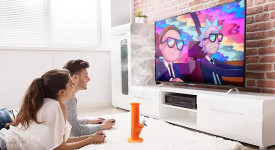



Thank you for leaving a comment for us!
Your feedback will be posted shortly after our moderator checks it.
Please note that we don’t publish reviews that: